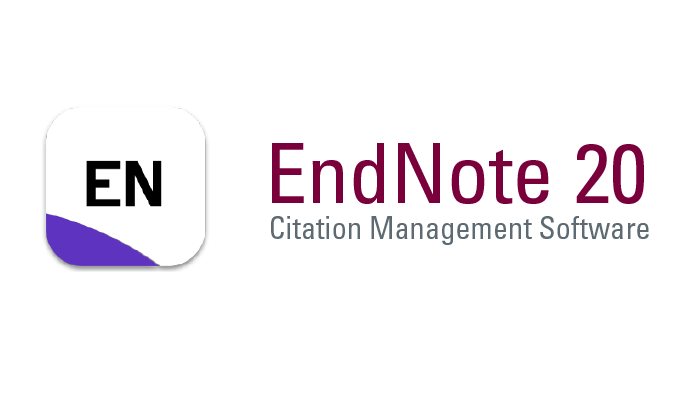STUDI KOMPARASI PEMIKIRAN ULAMA BADIUZZAMAN SAID NURSI DAN KITAB TA’LIM MUTA’ALIM TERHADAP PENDIDIKAN AKHLAK GENERASI MUDA
DOI:
https://doi.org/10.47887/amd.v2i2.29Keywords:
Keywords: Moral education concept, Badiuzzaman Said Nursi, Ta’lim Muta’alim’s bookAbstract
This research is motivated by the impact of moral education of the younger generation which is starting to become the public spotlight due to abandoning moral values. So the writer is interested in studying the concept of moral education according to the cleric Badiuzzaman Said Nursi and the Book byTa'lim Muta'alim by the scholar Sheikh al-Zarnuzi. This study uses the type of literature study research. The approach used in this research is a historical approach. The method used to analyze the content is (content analysis). The purpose of this study is to find out how the concept of moral education according to the cleric Badiuzzaman Said Nursi and Kitab Ta'lim Muta'alim, and to find out the comparison of the concept of thought according to the cleric Badiuzzaman Said Nursi and the Kitab Ta'lim Muta'alim to the moral education of the younger generation.
References
Afriantoni. (2015). Prnsip-Prinsip Pendidikan Akhlak Generasi Muda: Percikan Pemikiran Ulama Sufi Turki Badiuzzaman Said Nursi. Yogyakarta: Deepublish.
Alim, Muhammad. (2011). Pendidikan Agama Islam; Upaya Pembentukan Pemikiran dan Kepribadian Muslim. Bandung: Rosdakarya.
Al-Attas, Syed Muhammad Naquib. (1999). Islam dan Filsafat Sains (diterjemahkan oleh Saiful Muzani. Bandung: Mizan.
Al Zarnuji, t. th, Ta’limul Muta’alim.
Anwar, Saifuddin. (1998). Meteodologi Penelitian. Yogyakarta: Pillar Offset.
Arikonto, Suharsimi. (2002). Prosedur Penelitian. Jakarta: PT Rineka Cipta.
As’ad, Aliy. (2007). Terjemah Ta’limul Muta’alim. Kudus: Menara Kudus.
Azra, Azyumardi. (2000). Pendidikan Islam (Tradisi dan Modernisasi Menuju Milinium Baru. Jakarta: Logos.
Bekker, Anton Bekker & Achmad Charris Zubair. (1990). Metode Penelitian Filsafat. Yogyakarta: Kanisius.
Bhareisj, Hussein j. (1980). Himpunan Pengetahuan Islam (450 Masalah Agama Islam). Surabaya: Al-Ikhlas.
Bisri, Mustofa. (1994). Saleh Ritual, Saleh Sosial: Esai-esai Moral. Bandung: Mizan.
Departemen Agama RI. 2002. Al-Qur’an Al-Karim dan Terjemahannya. Semarang: PT Karya Toha Putra.
Departemen Agama RI dan Mesir 1997. Al-Qur’an dan Terjemahnya. Mushraf Asyarifah, Madinah Al Munawarah.
Https://www.asadiyahdapoko.com/2020/07/20/pendidikan-akhlak-menurut-syekh-al-zarnuji-dalam-kitab-talimul-mutaallim/#:~:text=Menurut%20Az%2DZarnuji%20pendidikan%20akhlak,ridha%2C%20dan%20lain%2Dlain
Keraf, Gorys. (2010). Argumentasi dan Narasi. Jakarta: PT Gramedia Pustaka Utama.
Krippendorf, Klaus. (1991). Analisis Isi. Jakarta: Rajawali Pers.
Ma’arif, Ahmad Syafi’i. (2000). Krisis dalam Pendidikan Islam. Jakarta: Al-Mawardi Prima
Mahmud, Ali Abdul Halim. (2004). Akhlak Mulia. Jakarta: Gema Insani.
Mustafa, A. (1999). Akhlak Tasawuf. Bandung: CV Pustaka Setia.
Nasution. (2001). Metode Research Penelitian Ilmiah, Edisi I. Jakarta: Bumi Aksara.
Noerhidayatullah. (2002). Insan Kamil: Metode Islam Memanusiakan Manusia. Bekasi: Intimedia dan Nalar.
Nursi, Badiuzzaman Said Nursi. (2003a). Risalah An-Nur: Said Nursi: Pemikir dan Sufi Besar Abad 20 (Menikmati Takdir Langit: Lama’ar. Jakarta: Murai Kencana.
Nursi, Badiuzzaman Said. (2004a). Mengokohkan Akidah Menggairahkan Ibadah, (Diterjemahkan oleh Muhammad Misbah). Jakarta: Robbani Press.
Pimay, Awaluddin. (1999). Konsep Pendidik dalam Islam (Studi Komparasi atas pandangan Al-Ghozali dan Al-Zarnuji). Semarang. Tesis PPS IAIN Walisongo Semarang.
Qabbani, Marwan. (1981). Syeikh Al-Zarnuji. Beirut: Dar Al Maktab Al Islami.
Suwito. (1995). “Konsep Pendidikan Akhlak Menurut Ibn Maskawaih”. Jakarta: Disertasi Doktor pada Program Pascasarjana (Pps) Institut Agama Islam Negeri (IAIN) Syarif Hidayatullah.
Thaib, Ismail. (1984). Risalah Akhlak. Yogyakarta: Bina Usaha.
Zainuddin. (1991). Seluk Beluk Pendidikan dari Al-Ghazali. Jakarta: Bumi Aksara.
Downloads
Published
How to Cite
Issue
Section
License
Copyright (c) 2021 Naela Maghfiroh

This work is licensed under a Creative Commons Attribution-ShareAlike 4.0 International License.
Authors retain copyright and grant the journal right of first publication and this work is licensed under a Creative Commons Attribution-ShareAlike 4.0 that allows others to share the work with an acknowledgement of the works authorship and initial publication in this journal.
All articles in this journal may be disseminated by listing valid sources and the title of the article should not be omitted. The content of the article is liable to the author.
Authors are able to enter into separate, additional contractual arrangements for the non-exclusive distribution of the journal's published version of the work (e.g., post it to an institutional repository or publish it in a book), with an acknowledgment of its initial publication in this journal.
Authors are permitted and encouraged to post their work online (e.g., in institutional repositories or on their website) prior to and during the submission process, as it can lead to productive exchanges, as well as earlier and greater citation of published work.
In the dissemination of articles by the author must declare the Al-Madaris Jurnal Pendidikan dan Studi Keislaman as the first party to publish the article.














